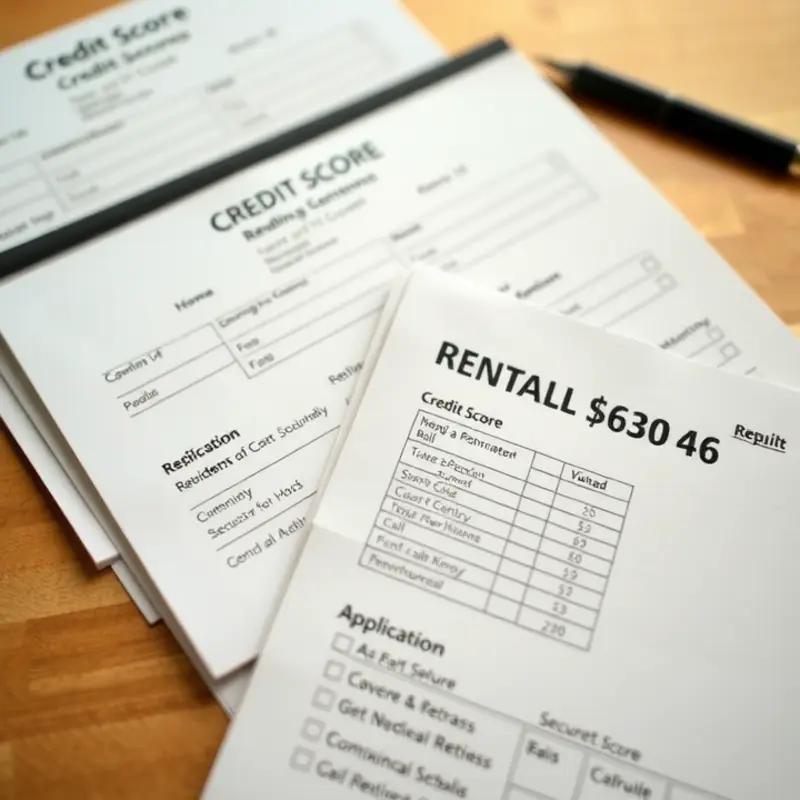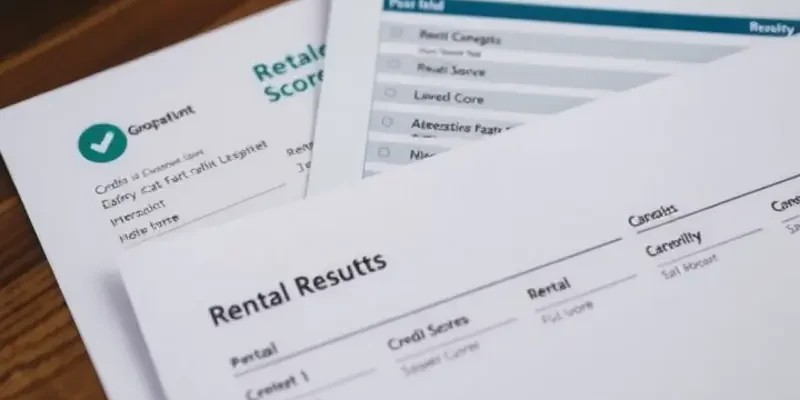Renting your first home can feel overwhelming, especially when you hear terms like credit scores and lease agreements tossed around. Understanding credit requirements is crucial for young professionals, students, couples, and families embarking on this journey. A solid grasp of your financial standing not only helps in navigating the rental landscape but also assures landlords that you’re a reliable tenant. With various factors influencing your renting eligibility, including credit history, income, and rental applications, this guide will provide you with clear insights and actionable steps toward securing your ideal rental. Let’s break down the essentials so you can approach your renting experience with confidence and clarity.
Understanding Credit Scores: The Key to Renting

A credit score is a crucial element in a landlord’s decision-making process when reviewing rental applications. These scores are numerical representations of your financial reliability, essentially summarizing how responsibly you manage debt. Understanding how credit scores are calculated can help you prepare for your rental journey.
Credit scores typically range from 300 to 850. Scores are calculated based on five primary factors: payment history, amounts owed, length of credit history, new credit, and credit mix. Payment history accounts for about 35% and is the biggest influencer, highlighting the importance of making timely payments. Amounts owed make up 30%, reflecting your credit utilization ratio. Ideally, this ratio should be below 30%. Length of credit history contributes 15%, focusing on the duration of your credit accounts. New credit, at 10%, pertains to recent lines of credit and their potential impact on your credit profile. Finally, credit mix, also 10%, evaluates the diversity of your credit in terms of loans and credit cards.
Landlords typically prefer applicants with scores of at least 620, though this can vary by location and the landlord’s discretion. Higher scores, generally above 700, often give renters better leverage in competitive markets, as they represent lower risk.
For those whose scores are less than ideal, improving your credit is feasible with dedication and consistency. The first step is reviewing your credit report for errors that may be negatively impacting your score. Regularly paying bills on time is crucial, as is reducing your credit card balances to lower credit utilization. Avoid opening multiple credit accounts in a short span; instead, focus on maintaining existing accounts. Building a mix of credit types over time can also help improve your score.
Renters should also be mindful of how they present themselves to potential landlords. Alongside boosting your credit score, consider preparing personal references and employment verification, which can offer reassurance of your dependability.
Understanding the importance of your credit score and actively working to improve it can significantly enhance your rental prospects. For additional insights on renting, explore our checklist for renters insurance, which is crucial for securing your new home. These steps not only prepare you for current rental endeavors but also build a strong financial foundation for future opportunities.
Navigating Your Rental Application: Key Tips and Strategies

When applying for your first rental home, preparation is essential to make a strong impression. Start by assembling all necessary documents, which typically include your photo ID, social security number, proof of income, and rental history. A comprehensive application demonstrates your reliability and readiness.
Among the most critical elements is your proof of income. Landlords commonly require recent pay stubs, bank statements, or a letter from your employer. These documents assure them that you can meet monthly rent obligations. If you’re self-employed, prepare tax returns or have your accountant draft a verification letter.
Another cornerstone is your credit history. While good credit is advantageous, not everyone has a perfect score. If this area poses a challenge, there are strategies to mitigate concerns. For instance, consider obtaining a co-signer with a strong credit score, or offering a higher security deposit to alleviate landlord concerns. Additionally, presenting evidence of consistent bill payments, such as utilities or phone bills, may help showcase responsibility.
Address potential red flags directly and honestly. If your credit history contains blemishes, such as missed payments or bankruptcies, a brief note explaining the context and demonstrating how you’ve improved since then can make a great difference. Landlords appreciate transparency and an upfront explanation indicates responsibility.
To solidify your application, provide credible references. Ideal references include past landlords, employers, or professional colleagues who can vouch for your character and reliability. Request letters from these individuals well in advance; a well-drafted reference can distinguish your application from others.
Furthermore, consider tailoring your references to your target rental. If you’re applying for a home that values community involvement, for instance, references that reflect your contributions can be compelling. Ensure that all provided contact details for your references are accurate and current.
Finally, submit a complete and tidy application. Double-check for missing information or inaccuracies that could disrupt processing. A meticulously filled-out form depicts you as detail-oriented and respectful of the rental process.
As you navigate this application journey, remember the unique aspects of your home’s locality may influence landlord expectations. For insights into local rental landscapes, resources like local rental guides can provide valuable context.
Mastering your rental application involves preparation, honesty, and strategic presentation. By focusing on these elements, your application will not only meet essential requirements but will also shine brightly to potential landlords.
Final words
Securing a rental as a first-time renter can bring both excitement and stress, especially given the emphasis on credit requirements. By understanding how credit scores are calculated and what landlords look for in a rental application, you can approach the process with ease and confidence. Remember, transparency during the application process, coupled with proactive measures to improve your credit standing, can pave the way for securing your dream home. Renters actively working on their credit and presenting themselves positively will find more doors opened than closed in their pursuit of a rental.









